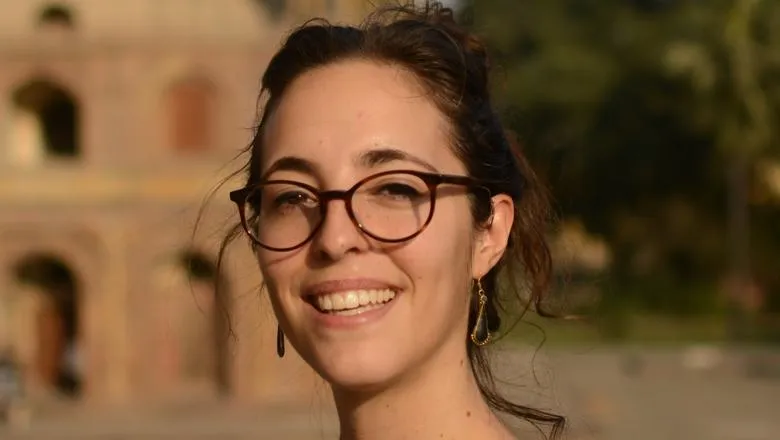09 October 2022
King's women in maths: Dr Teresa Bautista
Teresa Bautista interview

Who are you and what is your areas of research?
My name is Teresa Bautista and I am a postdoc in the Theoretical Physics group in the Department of Mathematics. I research certain aspects of Quantum Field Theories, the theories that describe the physics of subatomic particles. For example, I explore how the fact that energy must be positive constrains the interactions among particles.
I also do research on two-dimensional quantum gravity. Quantum gravity is the physics of the gravitational interaction at very small scales, much smaller than the known fundamental particles. It is relevant, for instance, to understand what happened at the very beginning of the universe. Studying it in the simplified setting of two spacetime dimensions is a step towards developing a realistic theory of quantum gravity for our four-dimensional universe.
What do you think is holding women back from pursuing a degree/career in the maths field?
In my opinion, there are several reasons. First, from a young age, girls are taught their achievements will mostly depend on how smart they are as opposed on how hard they work. This makes them more susceptible to give up when confronted with challenging subjects, since they easily feel they are "not good enough and can’t do anything to change it". Furthermore, the traditional roles in our society make girls more averse to risk taking and competition, both quite necessary in ambitious careers. Not to mention that societal stereotypes have long played a part at putting girls off from STEM subjects, typically thought to be only attainable by and suitable to men. All these make the pool of women going into STEM degrees much smaller. The few women who do decide to pursue a career in maths, in particular in academia, must still juggle a career path of short-term contracts in different countries and almost no chance at a permanent job, with any other personal ambitions of partnership, parenting, etc., with the heavy responsibility of proving that their minority is able and worthy of the discipline.
What are your thoughts on the future of Mathematics (in general) and Women in Mathematics?
Something that could happen is that, in those countries in which academia keeps being precarious, specially if in comparison with other jobs in the private sector, women become more numerous in university and research jobs, but only as a result of the academic career becoming less prestigious. Traditionally, men are pulled towards, and in turn end up determining, which careers are better payed. So women could end up being in the academic work force simply as a consequence of men leaving it, rather than as a consequence of equality. I hope this will not be the case. In my opinion, achieving a healthy diversity in maths and STEM academic careers will require, among others, an improvement of the labour conditions of the sector.
